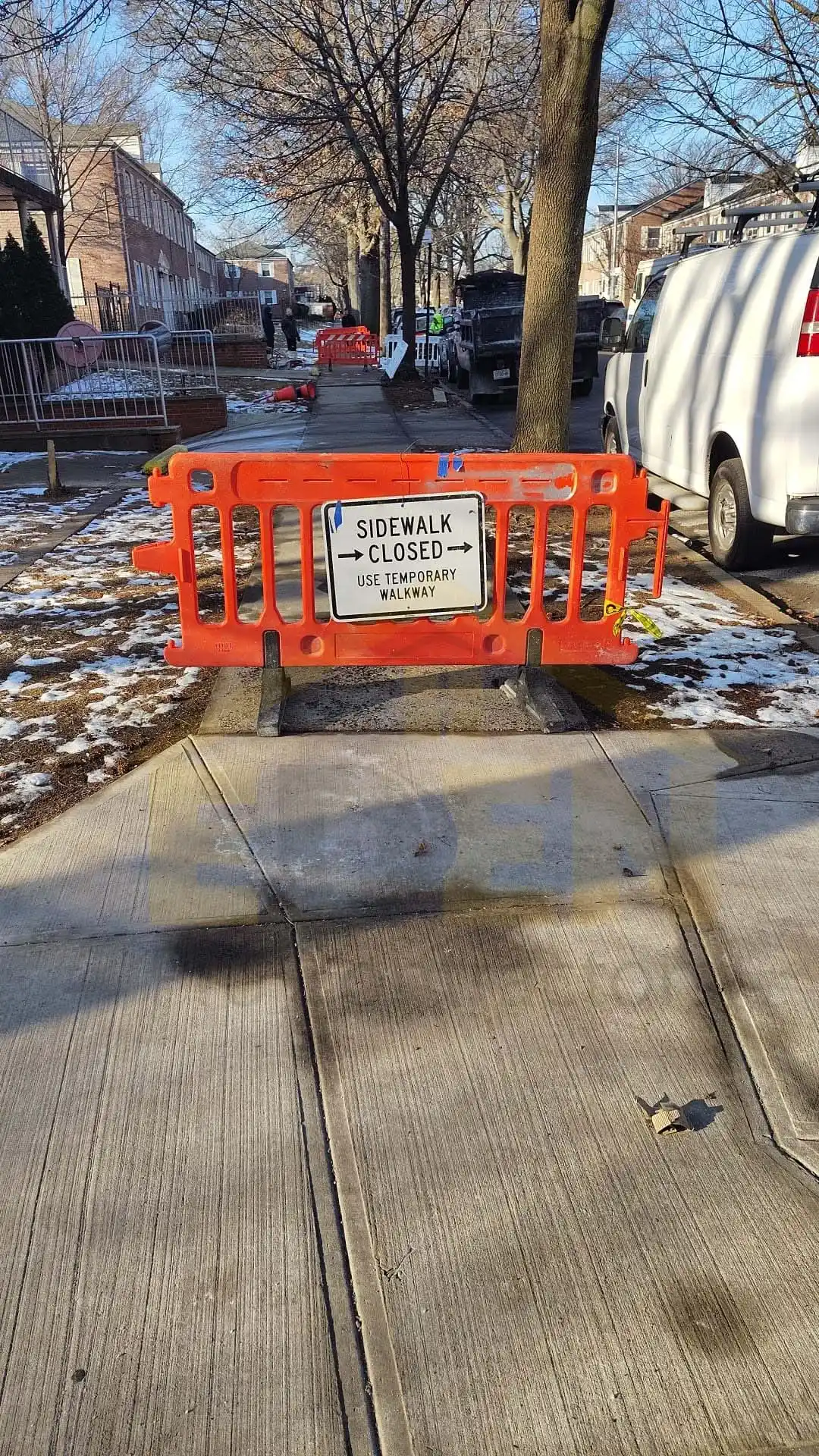
Does Salt Really Damage Your Sidewalk? What We See Every Winter
Every winter, salt shows up like clockwork. Homeowners scatter it on sidewalks to melt snow and ice. It seems helpful, right? But if you've ever noticed crumbling concrete once spring arrives, you’re not alone. Salt may keep you safe during icy days, but it can quietly eat away at your sidewalk over time.
What Salt Actually Does to Concrete
Most people don’t know this, but salt doesn’t melt ice. It lowers the freezing point of water. That sounds helpful until temperatures drop extremely low. When melted snow refreezes, it expands. This freeze-thaw cycle creates pressure in your concrete. Add salt to the mix, and things get worse.
Salt seeps into tiny cracks and pores in the concrete. When temperatures bounce up and down, that water freezes again. It breaks apart the surface bit by bit. Over the years, you’ll see pitting, scaling, or large surface flakes peeling off.
This kind of damage is called spalling. It’s more than cosmetic. Spalling makes your walkway weak. If ignored, it can lead to uneven slabs, trip hazards, or even a visit from the Department of Transportation.
Why Salt Is Tough on Sidewalks in the US
In colder cities like New York, Boston, and Chicago, salt is everywhere in winter. Municipal trucks spread it across roads. Property owners do the same for sidewalks. It keeps people from slipping, but there’s a hidden cost.
The issue isn’t just the salt you use. It’s also runoff from nearby roads. That runoff soaks into the sidewalk along the curb. Over time, that water carries salt deep into the slab. Once it’s in, the damage can happen even on days when the snow has cleared.
If your sidewalk is older, cracked, or unsealed, it’s even more vulnerable. The surface may already have open pores or stress marks. Salt finds its way into those openings fast. If your sidewalk isn’t repaired early, those small issues grow each season.
Common Deicers and What to Avoid
Rock salt, or sodium chloride, is the most common deicer in the US. It’s cheap and easy to find. But it’s also one of the most damaging to concrete.
Calcium chloride works faster in colder temperatures. But it can also attract moisture from the air. That creates long-term dampness inside your concrete. Magnesium chloride is a little easier on surfaces, but it still causes chemical changes over time.
Avoid using fertilizer-based products. They contain ammonium nitrate or ammonium sulfate. These are the worst offenders for sidewalks. They react harshly with concrete and cause it to break down faster than salt.
How to Protect Your Sidewalk in Winter
You don’t have to stop using deicers altogether. But you should be smart about what you apply and how much. Use only enough to loosen ice. Then remove it with a shovel or scraper. Leaving piles of salt behind causes more harm than good.
Apply deicer before a storm hits, not afterward. This gives it time to stop ice from bonding to the surface. If you wait too long, you’ll need more salt, and that increases the risk of surface damage.
Another smart move is sealing your concrete. Concrete sealers block water and salt from entering those tiny pores. If you live in a snowy region, apply a breathable, water-repellent sealer every few years.
Also, keep your sidewalk clear during winter. Use a plastic shovel to avoid chipping the surface. Avoid using metal blades unless absolutely needed. Keeping snow and ice off reduces how much salt you’ll need to spread in the first place.
Why Timely Repairs Matter
Even with the best care, concrete doesn’t last forever. Once salt damage sets in, it can spread quickly. A small crack in December can become a full break by March. That’s why early repairs are key.
Fixing your sidewalk before it worsens saves money in the long run. It also keeps your property safer for visitors, deliveries, and family members. In cities like New York, broken sidewalks can lead to DOT violations, which come with fines or repair orders.
If you’re not sure what to look for, call a professional for an inspection. At Eden Pro Contractors, we specialize in sidewalk repair that lasts through harsh winters. Whether it’s sealing, resurfacing, or replacing broken slabs, our team gets it done the right way.
Final Word
Salt helps prevent slips and falls, but it’s no friend to your sidewalk. Repeated exposure to harsh winter conditions can lead to deep surface damage, costly repairs, and even safety hazards. The good news? You don’t have to face it alone.
Smart deicing, regular maintenance, and quick repairs can go a long way. If you’re starting to notice signs of wear, don’t wait. Trust experts like Eden Pro Contractors to repair damaged sidewalk sections before things get worse. Because once spring arrives, it’s often too late to undo what salt has done.
